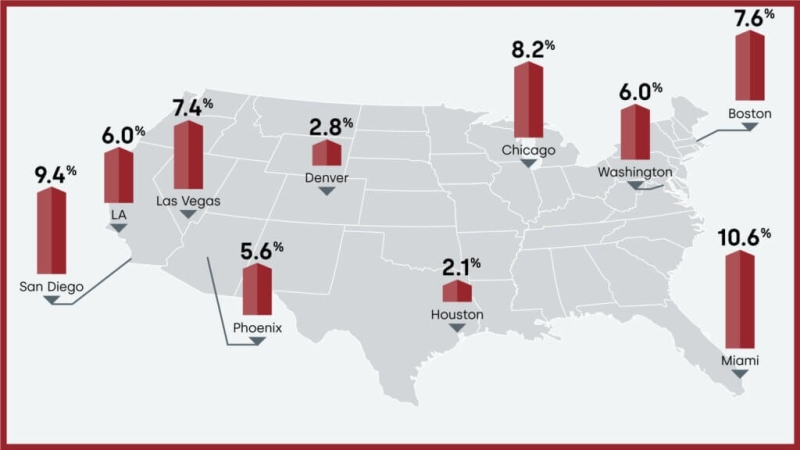Advertisement
DOJ Sues S&P Over MBS Misrepresentations

U.S. Attorney General Eric Holder has announced that the U.S. Department of Justice (DOJ) has filed a civil lawsuit against the credit rating agency Standard & Poor’s Ratings Services alleging that S&P engaged in a scheme to defraud investors in structured financial products known as Residential Mortgage-Backed Securities (RMBS) and Collateralized Debt Obligations (CDOs).
The lawsuit alleges that investors, many of them federally insured financial institutions, lost billions of dollars on CDOs for which S&P issued inflated ratings that misrepresented the securities’ true credit risks. The complaint also alleges that S&P falsely represented that its ratings were objective, independent, and uninfluenced by S&P’s relationships with investment banks when, in actuality, S&P’s desire for increased revenue and market share led it to favor the interests of these banks over investors.
“Put simply, this alleged conduct is egregious–and it goes to the very heart of the recent financial crisis,” said AG Holder. “Today’s action is an important step forward in our ongoing efforts to investigate and punish the conduct that is believed to have contributed to the worst economic crisis in recent history. It is just the latest example of the critical work that the President’s Financial Fraud Enforcement Task Force is making possible.”
Attorney General Eric Holder was joined in announcing the filing of the civil complaint by Acting Associate Attorney General Tony West, Principal Deputy Assistant Attorney General for the Civil Division Stuart F. Delery, and U.S. Attorney for the Central District of California André Birotte Jr. Also joining the Department of Justice in making this announcement were the attorneys general from California, Connecticut, Delaware, the District of Columbia, Illinois, Iowa and Mississippi, who have filed or will file civil fraud lawsuits against S&P alleging similar misconduct in the rating of structured financial products.
“For years, S&P placed its priority on maintaining its market share, instead of the investors who trusted in its supposedly objective ratings,” said California Attorney General Kamala Harris. “When the housing bubble burst, S&P’s house of cards collapsed and California paid the price—in billions. S&P must be held accountable for its conduct that contributed to one of our country’s worst financial crises.”
The action was filed in the Central District of California, home to the now defunct Western Federal Corporate Credit Union (WesCorp), which was the largest corporate credit union in the country. Following the 2008 financial crisis, WesCorp collapsed after suffering massive losses on RMBS and CDOs rated by S&P.
“Significant harm was caused by S&P’s alleged conduct in the Central District of California,” said U.S. Attorney for the Central District of California Birotte. “Across the seven counties in my district, we had huge numbers of homeowners who took out subprime mortgage loans, many of which were made by some of the country’s most aggressive lenders only because they later could be securitized into debt instruments that were given flawed ‘AAA’ ratings by S&P. This led to an untold number of foreclosures in my district. In addition, institutional investors located in my district, such as WesCorp, suffered massive losses after putting billions of dollars into RMBS and CDOs that received flawed and inflated ratings from S&P.”
The complaint, which names McGraw-Hill Companies Inc. and its subsidiary, Standard & Poor’s Financial Services LLC (collectively S&P) as defendants, seeks civil penalties under the Financial Institutions Reform, Recovery, and Enforcement Act of 1989 (FIRREA) based on three forms of alleged fraud by S&P: (1) mail fraud affecting federally insured financial institutions in violation of 18 U.S.C. § 1341; (2) wire fraud affecting federally insured financial institutions in violation of 18 U.S.C. § 1343; and (3) financial institution fraud in violation of 18 U.S.C. § 1344. FIRREA authorizes the Attorney General to seek civil penalties up to the amount of the losses suffered as a result of the alleged violations. To date, the government has identified more than $5 billion in losses suffered by federally insured financial institutions in connection with the failure of CDOs rated by S&P from March to October 2007.
"It's unfortunate that there wasn't more transparency into the underlying collateral backing up the loans in these pools or the credit due diligence that went into the underwriting," said Guy Taylor, CEO of Santa Barbara-based Equi-Trax Asset Solutions, a firm that provides collateral valuation products and services for lenders across the country. "But was this a failing on the part of one or more of the ratings agencies or of the industry overall? I think we have to conclude that it was both."
According to the complaint, S&P publicly represented that its ratings of RMBS and CDOs were objective, independent and uninfluenced by the potential conflict of interest posed by S&P being selected to rate securities by the investment banks that sold those securities.
“Clearly, we must all do a better job identifying economic trends that could lead to future crises," said S&P in a publicly released statement. "For their part, governments have established new institutions to identify risks to financial stability, such as the Financial Stability Oversight Council in the U.S. At S&P we have taken to heart lessons learned from the financial crisis and made extensive changes that reinforce the integrity, independence and performance of our ratings, including compliance with today’s enhanced regulatory oversight."
Contrary to these representations, from 2004 to 2007, the government alleges, S&P was so concerned with the possibility of losing market share and profits that it limited, adjusted and delayed updates to the ratings criteria and analytical models it used to assess the credit risks posed by RMBS and CDOs. According to the complaint, S&P weakened those criteria and models from what S&P's own analysts believed was necessary to make them more accurate.
“I don’t think it’s tough to prove,” said Illinois Attorney General Lisa Madigan. “There is an enormous amount of internal information that shows that they knew they weren’t being independent or objective. They knew they were rating junk, but saying it was high quality.”
The complaint also alleges that, from at least March to October 2007, and because of this same desire to increase market share and profits, S&P issued inflated ratings on hundreds of billions of dollars’ worth of CDOs. At the time, according to the allegations in the complaint, S&P knew that the quality of non-prime RMBS was severely impaired, and that the ratings on those mortgage bonds would not hold. The government alleges that S&P failed to account for this impairment in the CDO ratings it was assigning on a daily basis. As a result, nearly every CDO rated by S&P during this time period failed, causing investors to lose billions of dollars.
“Our industry has never been stronger but I fear this latest lawsuit from the DOJ may re-open a Pandora’s box of guidelines which were expelled several years ago,” said Andrew WeissMalik, chief operating officer at 360 Mortgage Group.
The underlying federal investigation, code-named “Alchemy,” that led to the filing of this complaint was initiated in November 2009 in connection with the President’s Financial Fraud Enforcement Task Force. The task force was established to wage an aggressive, coordinated and proactive effort to investigate and prosecute financial crimes. With more than 20 federal agencies, 94 U.S. attorneys’ offices and state and local partners, it’s the broadest coalition of law enforcement, investigatory and regulatory agencies ever assembled to combat fraud.
“S&P analysts worked diligently to keep up with an unprecedented, rapidly changing and increasingly volatile environment, while acting to ensure changes to their ratings reflected robust analysis and deliberation," read a statement from S&P. "In fact, throughout this time, S&P included in its analysis the possibility that a rise in mortgage delinquencies would result in bondholder losses and, as a result, required substantially more RMBS collateral as protection against such potential losses to support AAA CDO ratings. Regrettably, the breadth, depth, and effect of what ultimately occurred were greater than we—and—virtually everyone else—predicted."
About the author





